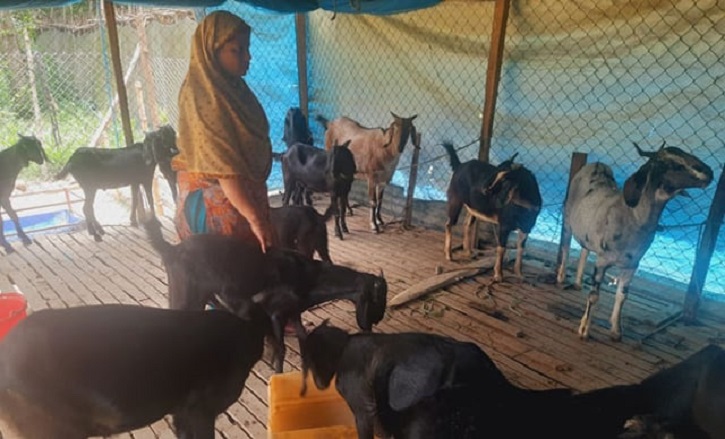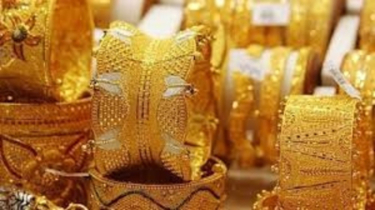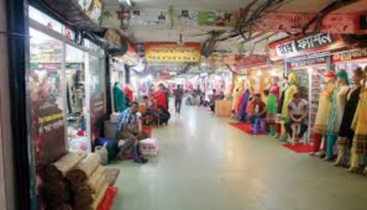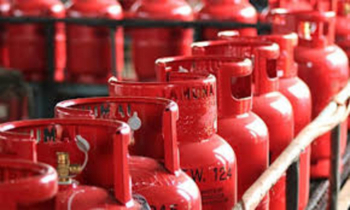
Photo: collected
In addition to beef fattening, goat fattening has grown in popularity as many marginalized families in the region, including the large Barind tract, have become self-sufficient.
Apart from commercial farming, many of the villagers are seen rearing different species of goat, including black Bengal, either in house or homestead areas in their native way.
According to the latest official data, around 5.25 lakh goats have been fattened in farms and houses ahead of the Eid-ul-Adha in the district.
Palli Karma Sahayak Foundation (PKSF), a state-owned anti-poverty organization, has been extending financial and technical support to the farmers in association with various non-government development organizations, including Sataful Bangladesh (SB).
Sohel Rana and his wife Rima Khatun, both graduates of Daulatpur village under Bagmara Upazila, have started goat rearing ventures at their house, failing to get a government job around five years back.
Since then, they used reared goats and sell them in sacrificial animal markets before Eid and the couple became self-reliant.
Two years back, they found a goat fattening farm adjacent to their house.
Talking to BSS here on Saturday, Sohel Rana said they fattened around 30 goats after purchasing kids at Taka 1.80 lakh in the current year. They sold eight of those at Taka 1.70 lakh and the rest are expected to be sold at around Taka 4.25 lakh.
He said many rural families have been rearing and fattening goats commercially and earning huge profits every year.
Some poor and marginalized people, including women, have achieved tremendous success in the sector.
For the last couple of years, many villagers have been seen fattening their goats using natural methods.
They use only straw, molasses, oilcake, gram, black-gram, green grass and wheat bran as feed instead of any steroid tablets or injections.
SB Executive Director Nazim Uddin Mollah said they are providing financial and technical assistance to the village-level entrepreneurs towards establishing goat farms and many of the beneficiaries have become self-reliant.
District Livestock Officer Dr Zulfikar Muhammad Akhter Hossain said there is an immense prospect of rearing and fattening goats.
There are more than 100 goat fattening farms in the district. Besides, the farming families reared two to five goats in houses.
In the current year, around 5.26 lakh goats were reared in the district, up by around one lakh from the previous year.
Dr Zulfikar Akhter said substantial and sustainable boosting of the rearing of goats, including black Bengal, has been playing a vital role in meeting protein demands coupled with promoting income generation and improving the living and livelihood conditions of rural people.
Farming has also been playing vital roles in creating earning opportunities and reducing poverty, besides meeting the protein demand of rural people.
He said the climate of the region is favorable for rearing Black Bengal goats. The unemployment problem can be solved and the poverty of the rural people can be reduced easily by farming Black Bengal goats.
The 'Black Bengal' is one of the top 5 meat producing breeds in the world. Its child production capacity is high, the meat is delicious, the skin is of international quality, its life expectancy in the region's climate is high and it is a tool for poverty alleviation.
The existing seven public sector farms in different parts of the country, including one in Rajshahi, have been renovated with modern facilities on behalf of the project.
Sheds have been built as per the ideal standard. The farms have been modernized by setting up offices, accommodations, godown, roads, electrification, drainage, dipping bath, composting, shed, boundary walls and deep tube-well.
Dr. Zulfikar Akhter said that in addition to creating competent manpower and public knowledge of goat farming, they are also distributing good quality goats from seven government goat development farms to farmers at the upazila level.
Source: BSS

.png)







